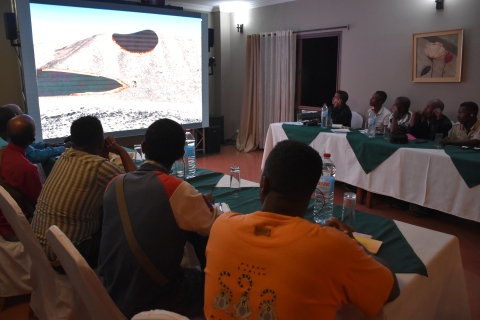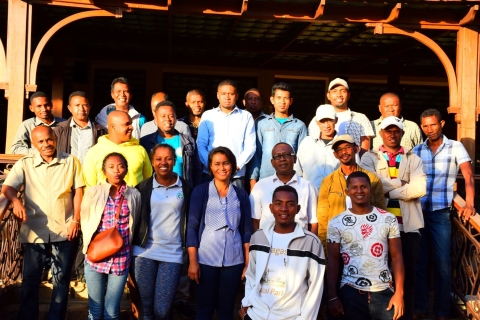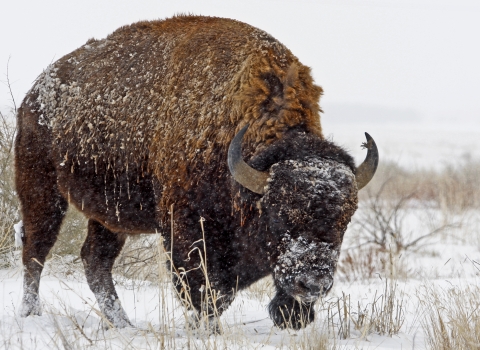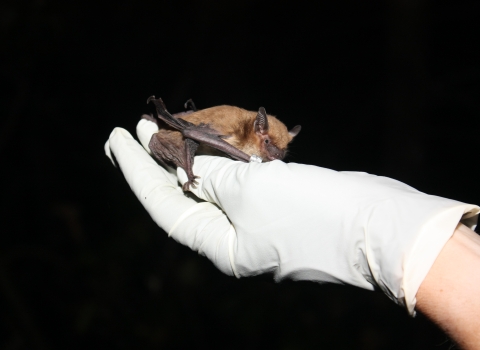The Menabe region of Madagascar includes one of the largest blocks of dry forest and is home to high levels of biodiversity, with many of its threatened and endangered species found nowhere else in the world. As the region struggles with high rates of deforestation, it faces an increasing number of wildfires, and the dry and fragile ecosystems within its protected areas are at substantial risk. Several years ago, Malagasy conservation agencies expressed interest in receiving firefighting and fire management training, hoping to mitigate the risks wildland fire poses to both people and wildlife. Continuing on the tradition, during the week of March 28, 2022, U.S. Fish and Wildlife Service - Montana Fire Zone – and the U.S. Department of Agriculture's Forest Service (USFS) fire managers worked with USAID to lead a virtual advanced wildland firefighting training course for partners and firefighters in the Menabe region.
Though COVID-19 protocols prevented in-person lessons this year, a “train the trainer” style of instruction allowed for meaningful classes. The initial 2022 cadre of students consisted of representatives of government agencies, parks, and villages in Madagascar who already had considerable knowledge and experience in local fire behavior/tactics. Trainings were presented in French via translated PowerPoint slides, with an interpreter translating instruction from English to French for the students. Instruction included Firing Operations, Water Handling, Tree Felling, Leadership/Incident Command System, and Tactical Decision Exercises – which were then followed-up with a field day component using the skills learned in the classroom.
After completion of the first training session, selected graduates of the class then became the instructors (alongside U.S. instructors) for the second cadre, which was adjusted to provide instruction to less experienced firefighters and village members.
“One of the beautiful things about wildland fire management is that it transcends countries and cultures,” said Andy Schell, Assistant Fire Management Officer for the Montana Fire Zone with the USFWS. “Despite cultural and geographic differences, fire occurs everywhere. It makes no distinctions as to what or where it burns. The management of fire can be taught and utilized no matter where you are in the world.”
The resourcefulness and resilience of villages and parks in the Menabe region of Madagascar was evident though discussions during the training. The Malagasy culture illustrates what it means to live with fire and overcome obstacles associated with limited resources and high fire danger. Through common ground based in fire response tactics and fire behavior discussions, USFWS and USFS instructors and the cadre of students gained new ideas and concepts to bring back to their home units and villages.
This story is part of our Open Spaces blog.






